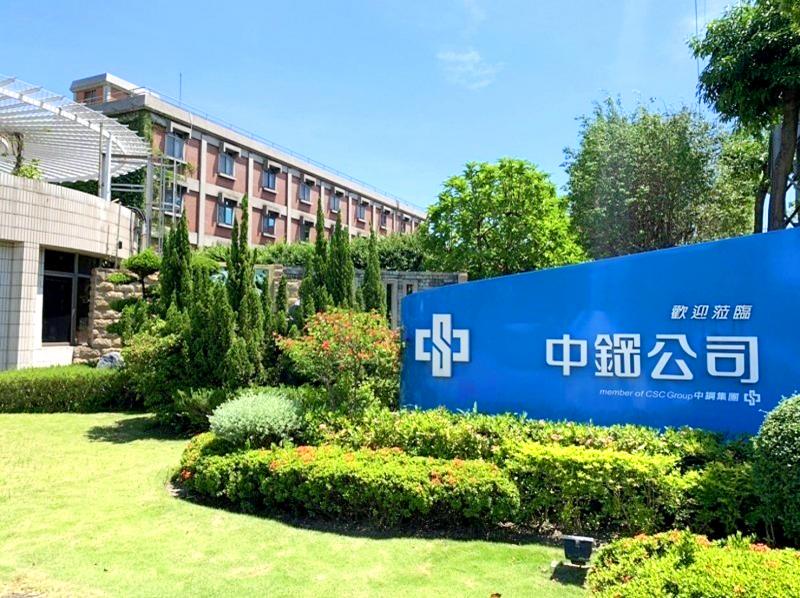Taiwanese companies need to work on decarbonizing or risk being “excluded from the supply chains of the future,” the Ministry of Economic Affairs said yesterday.
Speaking at a forum for decarbonation organized by the Chinese National Federation Industries (CNFI, 全國工業總會), Bureau of Foreign Trade Deputy Director-General Cynthia Kiang (江文若) said that now is the time for Taiwanese companies to start preparing for requirements from countries and companies for greener supply chains and clear accounting of carbon emissions.
The EU in July announced the Carbon Border Adjustment Mechanism (CBAM), under which products produced with a large carbon footprint would face tariffs starting in 2026, Kiang said.

Photo: Lin Jin-hua, Taipei Times
The law’s primary goal is to prevent products with large carbon footprints from competing with those with low footprints made in the EU.
“The 2023 date for the beginning of implementation is extremely challenging,” Kiang said.
Although Taiwanese exports to the EU are limited compared with China, the US and other countries, the trend toward demanding better accounting of carbon emissions and tariffs for higher-carbon products would become increasingly worldwide, Kiang said.
“More important than the direct export of goods to Europe, [Taiwanese businesses] need to take notice of the carbon requirements of major international companies,” Kiang said. “Otherwise they are at risk of being excluded from the global supply chain.”
It is not just tech companies such as Google and Amazon that have made commitments to greening their supply chains, footwear brand Nike has as well, leading to Taiwanese shoemaker Pou Chen Corp (寶成工業), the world’s largest manufacturer of branded athletic and casual footwear, to commit to stopping carbon emissions growth starting in 2025, Kiang said.
“The Bureau of Foreign Trade has been assisting exporters with tracking their carbon footprints whether they are in textile or electronics,” Kiang said. “We wish to accelerate the process of international recognition for our companies as part of the circular economy.”
At the same forum, China Steel Corp executive vice president Wang Shyi-chin (王錫欽) said that the company would be looking to a foundry that uses hydrogen rather than coal to make steel.
“To reach our eventual goal of reducing carbon emissions by 20 percent, we can replace some iron ore with recycled iron scrap, replace coal with hydrogen fuel, and capture more of the gas at the top of the foundry to generate electricity,” Wang said. “By refining our procedures, we can create a lower-carbon or even eventually zero carbon steel.
China Steel hopes to reduce carbon emissions by 7 percent by 2025 and achieve carbon neutrality in the same year, in line with the government’s goal for Taiwan to be Carbon Neutral by 2025.

Taiwan will prioritize the development of silicon photonics by taking advantage of its strength in the semiconductor industry to build another shield to protect the local economy, National Development Council (NDC) Minister Paul Liu (劉鏡清) said yesterday. Speaking at a meeting of the legislature’s Economics Committee, Liu said Taiwan already has the artificial intelligence (AI) industry as a shield, after the semiconductor industry, to safeguard the country, and is looking at new unique fields to build more economic shields. While Taiwan will further strengthen its existing shields, over the longer term, the country is determined to focus on such potential segments as

UNCERTAINTY: Innolux activated a stringent supply chain management mechanism, as it did during the COVID-19 pandemic, to ensure optimal inventory levels for customers Flat-panel display makers AUO Corp (友達) and Innolux Corp (群創) yesterday said that about 12 to 20 percent of their display business is at risk of potential US tariffs and that they would relocate production or shipment destinations to mitigate the levies’ effects. US tariffs would have a direct impact of US$200 million on AUO’s revenue, company chairman Paul Peng (彭雙浪) told reporters on the sidelines of the Touch Taiwan trade show in Taipei yesterday. That would make up about 12 percent of the company’s overall revenue. To cope with the tariff uncertainty, AUO plans to allocate its production to manufacturing facilities in

COLLABORATION: Given Taiwan’s key position in global supply chains, the US firm is discussing strategies with local partners and clients to deal with global uncertainties Advanced Micro Devices Inc (AMD) yesterday said it is meeting with local ecosystem partners, including Taiwan Semiconductor Manufacturing Co (TSMC, 台積電), to discuss strategies, including long-term manufacturing, to navigate uncertainties such as US tariffs, as Taiwan occupies an important position in global supply chains. AMD chief executive officer Lisa Su (蘇姿丰) told reporters that Taiwan is an important part of the chip designer’s ecosystem and she is discussing with partners and customers in Taiwan to forge strong collaborations on different areas during this critical period. AMD has just become the first artificial-intelligence (AI) server chip customer of TSMC to utilize its advanced

Chizuko Kimura has become the first female sushi chef in the world to win a Michelin star, fulfilling a promise she made to her dying husband to continue his legacy. The 54-year-old Japanese chef regained the Michelin star her late husband, Shunei Kimura, won three years ago for their Sushi Shunei restaurant in Paris. For Shunei Kimura, the star was a dream come true. However, the joy was short-lived. He died from cancer just three months later in June 2022. He was 65. The following year, the restaurant in the heart of Montmartre lost its star rating. Chizuko Kimura insisted that the new star is still down